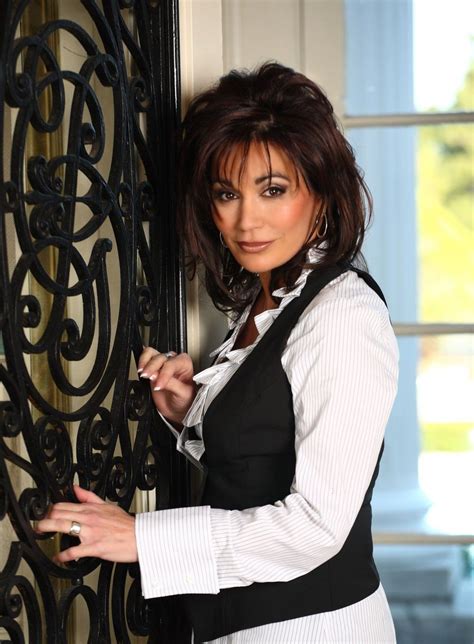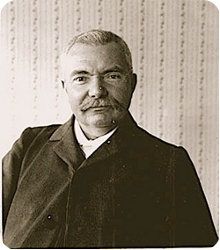A Quote by Lord Chesterfield
I knew a gentleman who was so good a manager of his time that he would not even lose that small portion of it which the calls of nature obliged him to pass in the necessary-house; but gradually went through all the Latin poets in those moments.
Related Quotes
There is a time in every man's education when he arrives at the conviction that envy is ignorance; that imitation is suicide; that he must take himself for better, for worse, as his portion; that though the wide universe is full of good, no kernel of nourishing corn can come to him but through his toil bestowed on that plot of ground which is given to him to till. The power which resides in him is new in nature, and none but he knows what that is which he can do, nor does he know until he has tried.
He comes to us as One unknown, without a name, as of old, by the lakeside, He came to those men who knew Him not. He speaks to us the same words: "Follow thou me!" and sets us to the tasks which He has to fulfill for our time. He commands. And to those who obey Him, whether they be wise or simple, He will reveal himself in the toils, the conflicts, the sufferings which they shall pass through in His fellowship, and, as an ineffable mystery, they shall learn in their own experience Who He is.
But oh! the Latin!-Madame, you can really have no idea of what a mess it is. The Romans would never have found time to conquer the world if they had been obliged first to learn Latin. Lucky dogs! they already knew in their cradles the nouns ending in im. I on the contrary had to learn it by heart, in the sweat of my brow.
Once, hurrying through a busy airport to get to my gate on time for a connecting flight, I came upon a lady in a wheelchair. Amidst the chaos of the hundreds of people rushing around us, my eyes met hers. The sweetest smile appeared on her face. I smiled back, but I knew she would never fully realize how that small gesture had filled my soul. I believe that God is in our everyday. Many moments occur in our lives which reveal his face, his touch, his voice. Look for him today. He will be found.
God decreed to save and damn certain particular persons. This decree has its foundation in the foreknowledge of God, by which he knew from all eternity those individuals who would, through his preventing [going before] grace, believe, and, through his subsequent grace would persevere by which foreknowledge, he likewise knew those who would not believe and persevere.
I don't think I would have been a good architect. Really, I have thought about this from time to time, and I might have wound up like my father, who never did find that which he could devote his life to. He sort of drifted from job to job. He was a traveling salesman, he was a bookkeeper, he was an office manager, he was here, there, there. And however enthusiastic he was at the beginning, his job would bore him. If I hadn't had the writing, I think I might have replicated what he was doing, which would not have been good.
It would be well for those interested to reflect whether there now exists, or ever has existed, a wealthy and civilized community in which one portion did not live on the labor of another; and whether the form in which slavery exists in the South is not but one modification of this universal condition... Let those who are interested remember that labor is the only source of wealth, and how small a portion of it, in all old and civilized countries, even the best governed, is left to those by whose labor wealth is created.
You must therefore zealously guard in his mind the curious assumption 'My time is my own'. Let him have the feeling that he starts each day as the lawful possessor of twenty-four hours. Let him feel as a grievous tax that portion of this property which he has to make over to him employers, and as a generous donation that further portion which h allows to religious duties. But what he must never be permitted to doubt is that the total from which these deductions have been made was, in some mysterious sense, his own personal birthright.
But just as he knew the sun was obliged to rise each morning in the east, no matter how much a western arisal might have pleased it, so he knew that Buttercup was obliged to spend her love on him. Gold was inviting, and so was royalty, but they could not match the fever in his heart, and sooner or later she would have to catch it. She had less choice than the sun.
No one really knew the sciences except the Lord Robert, Bishop of Lincoln, by reason of his length of life and experience, as well as of his studiousness and zeal. He knew mathematics and perspective, and there was nothing which he was unable to know; and at the same time he was sufficiently acquainted with languages to be able to understand the saints and the philosophers and the wise men of antiquity but his knowledge of languages was not such as to enable him to effect translations until the latter portion of his life.
If I knew that today would be the last time I’d see you, I would hug you tight and pray the Lord be the keeper of your soul. If I knew that this would be the last time you pass through this door, I’d embrace you, kiss you, and call you back for one more. If I knew that this would be the last time I would hear your voice, I’d take hold of each word to be able to hear it over and over again. If I knew this is the last time I see you, I’d tell you I love you, and would not just assume foolishly you know it already.
One of the surest tests of the superiority or inferiority of a poet is the way in which a poet borrows. Immature poets imitate mature poets steal bad poets deface what they take and good poets make it into something better or at least something different. The good poet welds his theft into a whole of feeling which is unique utterly different than that from which it is torn the bad poet throws it into something which has no cohesion. A good poet will usually borrow from authors remote in time or alien in language or diverse in interest.
Religion is as necessary to reason as reason is to religion. The one cannot exist without the other. A reasoning being would lose his reason, in attempting to account for the great phenomena of nature, had he not a Supreme Being to refer to; and well has it been said, that if there had been no God, mankind would have been obliged to imagine one.
Man passes; he knows that he is dust; nothing is more evident than his frailty. If he should for a single moment forget it, what a chorus of voices would recall it to him! And yet, in the drop of existence which he absorbs, he takes in ages through memory and ages through presentiment. In the moments as they pass, he dimly sees eternity, and more than this, he possesses it by anticipation.
To instruct calls for energy, and to remain almost silent, but watchful and helpful, while students instruct themselves, calls for even greater energy. To see someone fall (which will teach him not to fall again) when a word from you would keep him on his feet but ignorant of an important danger, is one of the tasks of the teacher that calls for special energy, because holding in is more demanding than crying out.



































